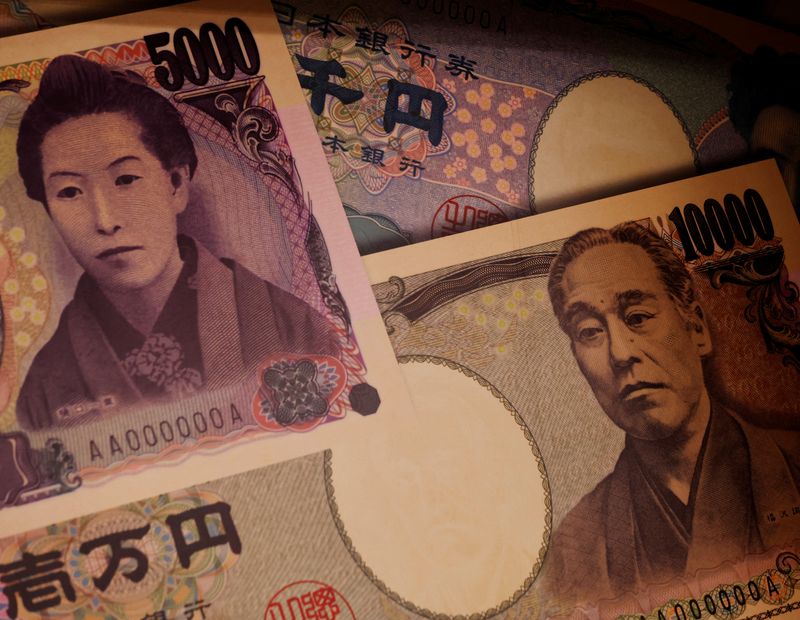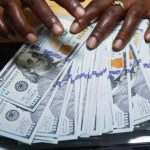LONDON/SINGAPORE (Reuters) -Investors rushed into the Swiss franc and Japanese yen – long seen as safe-haven currencies – on Friday after reports said Israel had attacked Iran in the latest tit-for-tat exchange between the two adversaries, pushing up oil prices and causing caution across global markets.
People familiar with the matter told Reuters that Israel attacked Iran, days after Iran launched an unprecedented assault on Israel in response to a suspected Israeli strike on its consulate in Syria, although Iran played the incident down and said it did not plan a new response.
Markets initially reacted sharply to the news, which sparked a sell-off in risk assets, caused oil and gold prices to jump, and ignited a rally in U.S. Treasuries and safe-haven currencies.
The Swiss franc, valued at times of stress for its stability, jumped more than 1% as the first reports came in to hit 0.9011 per dollar, its highest in two weeks.
It then pared its gains, and was up around 0.5% at 0.9079 to the dollar as markets retraced some of their initial reaction after a relatively subdued response from Iran.
The U.S. dollar index, which tracks the currency against six major peers, also rose but then gave up its gains to stand 0.1% lower at 106.07.
Iranian state media said three drones over the central city of Isfahan had been shot down and a senior Iranian official said there were no plans for immediate retaliation. Israel’s leadership and military were silent early on Friday.
“My perception is the media in Iran have essentially downplayed the whole thing,” said Francesco Pesole, currency strategist at ING. “(That) could be an indication they don’t want to escalate further.”
He added: “It’s speculating here because the news that we’re getting is not really clear… obviously the situation will remain volatile.”
ASIAN CURRENCIES UNDER PRESSURE
The yen was up roughly 0.2% at 154.39 per dollar, after having rallied more than 0.6% in reaction to reports of the attack.
“It’s pretty obvious the market is nervous,” said Moh Siong Sim, a currency strategist at Bank of Singapore. “We’re still in a situation where we know something has happened. But we need to understand the degree of retaliation.”
Currencies bounced around throughout the European morning session, with the euro initially falling but last up 0.1% at $1.06505. The British pound was flat at $1.2441.
The broad theme of the last few weeks has been a surging U.S. dollar on the back of a strong American economy. The euro is down 1.3% this month, while sterling has fallen 1.5%.
Hot data, especially figures last week showing inflation rose to 3.5% in March, has caused traders to rapidly downsize their bets on Federal Reserve interest rate cuts this year to price in two reductions, most likely starting in September. That has caused U.S. bond yields to spike, boosting the dollar index to its highest since November earlier this week.
Asian currencies have come under particular pressure, and finance chiefs in the United States, Japan and South Korea this week issued a rare trilateral warning over the two Asian nations’ sliding exchange rates, raising the prospect of a potential joint intervention.

Bank of Japan Governor Kazuo Ueda said on Thursday the central bank may raise interest rates again if the yen’s declines significantly push up inflation, highlighting the impact currency moves may have on the timing of the next policy shift.
Ueda’s comments come ahead of the BOJ’s monetary policy meeting next week. Data on Friday showed Japanese core inflation slowed to 2.6% year-on-year in March, from 2.8%, although remained above the central bank’s 2% target.
To read the full article, Click Here

